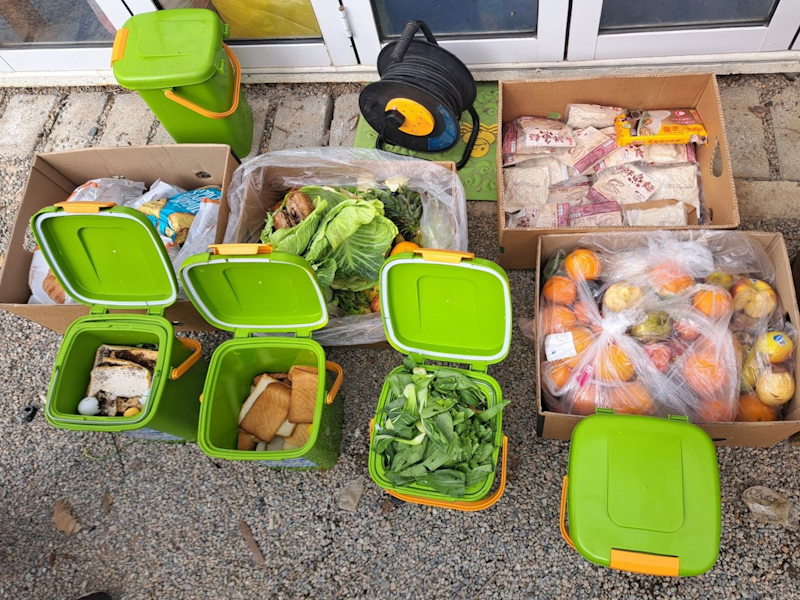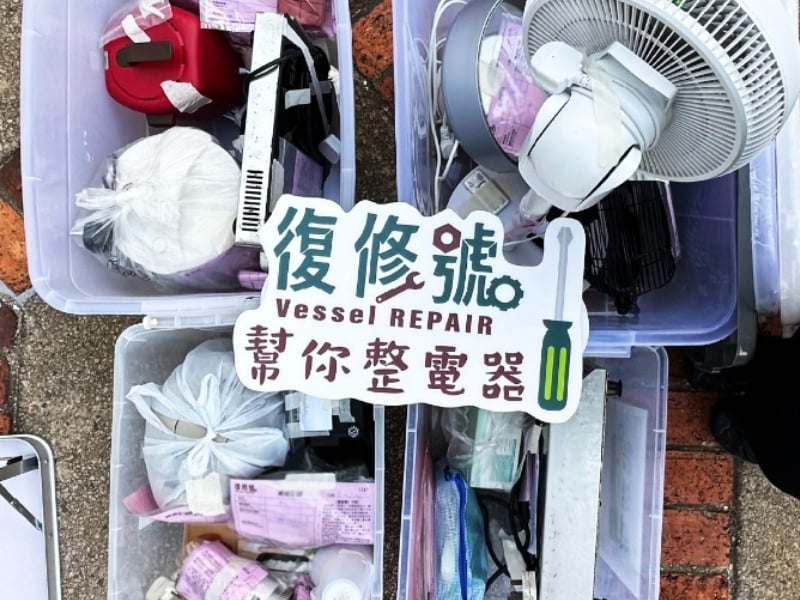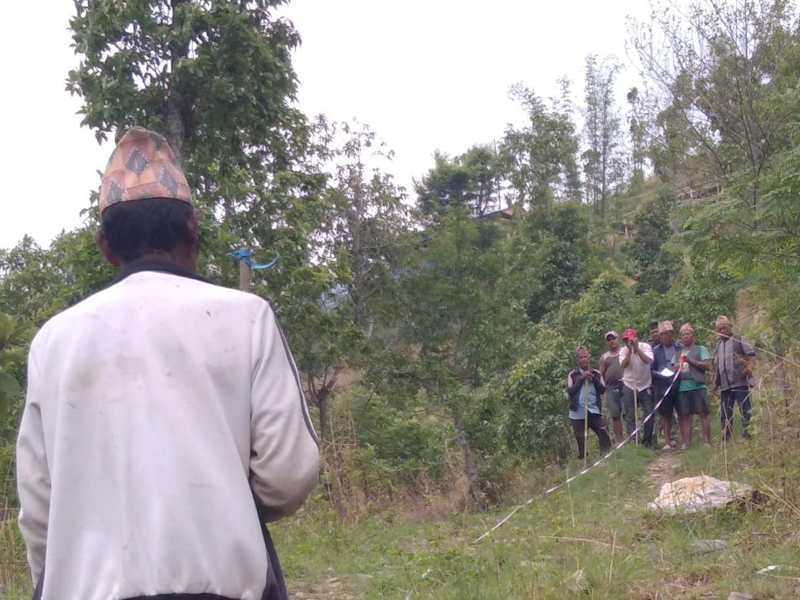
From Kitchen Scraps to Community Good
While pursuing economic development, Hong Kong, like many developed regions, faces severe environmental and social challenges. Among these, the issue of food waste is particularly prominent. All citizens and shops in Hong Kong generate up to 3,190 tons of food waste on average every day (2023 data), an amount equivalent to the weight of 246 double-decker buses. This continuously brings immense pressure to landfills and the local environment. When food waste decomposes in landfills, it releases potent greenhouse gases like methane, severely exacerbating climate change. Additionally, the collection and transportation of food waste also creates a significant carbon footprint. To address the environmental pressure and climate impact brought by this massive amount of food waste, we urgently need innovative and sustainable solutions to effectively utilize food waste and reduce waste at the source. To build Hong Kong into a sustainable and livable city, we require not only long-term and effective policies to address these pressing environmental issues, but also major value and behavioral changes in society. In order to address these urgent challenges, the Bio-Loop Nature-based Food Waste Recycling Pilot Scheme (“this pilot project”) is set to launch in April 2025. This forward-thinking initiative, led by A Plastic Ocean Foundation with funding from ZeShan Foundation, brings together Gaw Capital People’s Place and Lingnan University’s Science Unit. Through this pilot project, pre-consumer food waste are collected from malls in North and Tuen Mun districts. Black soldier fly (BSF) technology and IoT-optimized aquaponics are used to transform food waste into edible fish and vegetables, the harvests of which will be donated to underprivileged communities through local charities. This sustainable solution reduces landfill pressure and carbon emissions while supporting a circular economy. To engage the public and promote sustainable practices, it offers free guided tours of its waste processing and aquaponics facilities for schools and the food and beverage industry stakeholders.
This pilot project was developed and designed by A Plastic Ocean Foundation, integrating nature-based solutions with the principles of sustainability and circular economy. By combining BSF technology and IoT-optimized aquaponics systems, this project transforms pre-consumer food waste from local restaurants into valuable products such as edible fish and vegetables. In addition to nature-based solutions for food waste recycling, this pilot project incorporates a community-based sustainable waste management approach. Following the principle of “local production and processing,” the pre-consumer food waste from restaurants will be transported to IoT-enabled BSF facilities in each district accordingly. It reduces reliance on centralized waste facilities, thereby lowering the risks of waste leakage, minimizing carbon emissions during transportation, and easing the pressure on landfills. The 2-year Pilot began in April 2025. During Phase One, pre-consumer food waste will be collected from restaurants located at People’s Place’s Wah Ming, Wah Sum, and Yung Shing Shopping Centres in the North District, and H.A.N.D.S Shopping Centre in Tuen Mun. We will then transport the waste to IoT-enabled BSF facilities in each district. The IoT technology boosts efficiency, monitoring and adjusting conditions like temperature to optimize larvae feeding. The black soldier fly will efficiently convert organic substances from food scraps into larval biomass rich in protein and lipids. The resulting larval biomass can be processed into a protein-rich feed ingredient suitable for aquaponic systems. In aquaponics, these nutrients are subsequently transferred through the food web: from the feed to the fish, and from the fish waste to the plants and facilitating nutrient cycling. In Phase Two, this pilot project aims to process at least six tons of community pre-consumption food waste and produce at least one ton of aquaponics products, which will be donated to underprivileged communities through local charities. By completing this cycle, the Pilot turns waste into benefiting the community.
Community Engagement and Public Education
To raise awareness, we will hold educational booths and exhibitions at H.A.N.D.S Shopping Centre in Tuen Mun during summer 2025. Local schools, non-profit organizations and food and beverage industry stakeholders are also invited to participate in free guided tours of BSF facilities at Lingnan University and aquaponics systems to learn about sustainable waste management and circular economy practices. We envision the Bio-Loop system being promoted in the 2 pilot districts, and to be replicated as a demonstration case in other communities and potentially setting a stage for policy discussion. We hope to collaborate with more like-minded partners to explore opportunities and possibilities for project expansion, thereby increasing the impact of Bio-Loop system. We are striving to bring about structural changes and make innovative strides in environmental sustainability and resource management.
Willy Kwong
While pursuing economic development, Hong Kong, like many developed regions, faces severe environmental and social challenges. Among these, the issue of food waste is particularly prominent. All citizens and shops in Hong Kong generate up to 3,190 tons of food waste on average every day (2023 data), an amount equivalent to the weight of 246 double-decker buses. This continuously brings immense pressure to landfills and the local environment. When food waste decomposes in landfills, it releases potent greenhouse gases like methane, severely exacerbating climate change. Additionally, the collection and transportation of food waste also creates a significant carbon footprint. To address the environmental pressure and climate impact brought by this massive amount of food waste, we urgently need innovative and sustainable solutions to effectively utilize food waste and reduce waste at the source. To build Hong Kong into a sustainable and livable city, we require not only long-term and effective policies to address these pressing environmental issues, but also major value and behavioral changes in society. In order to address these urgent challenges, the Bio-Loop Nature-based Food Waste Recycling Pilot Scheme (“this pilot project”) is set to launch in April 2025. This forward-thinking initiative, led by A Plastic Ocean Foundation with funding from ZeShan Foundation, brings together Gaw Capital People’s Place and Lingnan University’s Science Unit. Through this pilot project, pre-consumer food waste are collected from malls in North and Tuen Mun districts. Black soldier fly (BSF) technology and IoT-optimized aquaponics are used to transform food waste into edible fish and vegetables, the harvests of which will be donated to underprivileged communities through local charities. This sustainable solution reduces landfill pressure and carbon emissions while supporting a circular economy. To engage the public and promote sustainable practices, it offers free guided tours of its waste processing and aquaponics facilities for schools and the food and beverage industry stakeholders.
Bio-Loop Pilot Details
This pilot project was developed and designed by A Plastic Ocean Foundation, integrating nature-based solutions with the principles of sustainability and circular economy. By combining BSF technology and IoT-optimized aquaponics systems, this project transforms pre-consumer food waste from local restaurants into valuable products such as edible fish and vegetables. In addition to nature-based solutions for food waste recycling, this pilot project incorporates a community-based sustainable waste management approach. Following the principle of “local production and processing,” the pre-consumer food waste from restaurants will be transported to IoT-enabled BSF facilities in each district accordingly. It reduces reliance on centralized waste facilities, thereby lowering the risks of waste leakage, minimizing carbon emissions during transportation, and easing the pressure on landfills. The 2-year Pilot began in April 2025. During Phase One, pre-consumer food waste will be collected from restaurants located at People’s Place’s Wah Ming, Wah Sum, and Yung Shing Shopping Centres in the North District, and H.A.N.D.S Shopping Centre in Tuen Mun. We will then transport the waste to IoT-enabled BSF facilities in each district. The IoT technology boosts efficiency, monitoring and adjusting conditions like temperature to optimize larvae feeding. The black soldier fly will efficiently convert organic substances from food scraps into larval biomass rich in protein and lipids. The resulting larval biomass can be processed into a protein-rich feed ingredient suitable for aquaponic systems. In aquaponics, these nutrients are subsequently transferred through the food web: from the feed to the fish, and from the fish waste to the plants and facilitating nutrient cycling. In Phase Two, this pilot project aims to process at least six tons of community pre-consumption food waste and produce at least one ton of aquaponics products, which will be donated to underprivileged communities through local charities. By completing this cycle, the Pilot turns waste into benefiting the community.
Community Engagement and Public Education
To raise awareness, we will hold educational booths and exhibitions at H.A.N.D.S Shopping Centre in Tuen Mun during summer 2025. Local schools, non-profit organizations and food and beverage industry stakeholders are also invited to participate in free guided tours of BSF facilities at Lingnan University and aquaponics systems to learn about sustainable waste management and circular economy practices. We envision the Bio-Loop system being promoted in the 2 pilot districts, and to be replicated as a demonstration case in other communities and potentially setting a stage for policy discussion. We hope to collaborate with more like-minded partners to explore opportunities and possibilities for project expansion, thereby increasing the impact of Bio-Loop system. We are striving to bring about structural changes and make innovative strides in environmental sustainability and resource management.
Willy Kwong
From Kitchen Scraps to Community Good
CEO
A Plastic Ocean Foundation
CEO
A Plastic Ocean FoundationRelated Links



















































